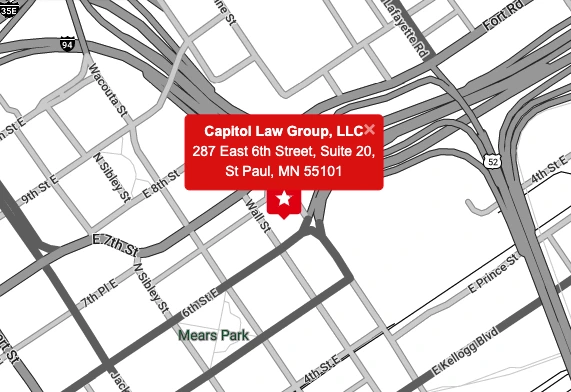St. Paul Drug Crime Lawyers and Prescription Drug Offenses

Until recently, most local law enforcement agencies did not classify prescription drug overdoses as criminal acts, even though the incident probably involved illegal conduct. But today, prescription drug overdoses kill about 47,000 Americans a year and seriously injure tens of thousands of others. The opioid epidemic has changed the legal landscape, especially with regard to prescription drug crimes.
All criminal convictions have both short and long term consequences. But drug crimes also have a significant social stigma, in addition to a legal one. So, these consequences are drastic indeed.
From start to finish, a St. Paul drug crime lawyer is well-positioned to minimize or even eliminate the impact of a prescription drug crime charge and conviction. These efforts mean a great deal to you and your family, both now and in the future.
Types of Prescription Durg Crimes
Possession cases account for about 85 percent of the drug crime prosecutions in Ramsey County. Prosecutors are incredibly aggressive in this area, typically because drug cases are comparatively easy to prove in court,
That’s assuming police officers complied with all appropriate procedural requirements, such as the Miranda warnings. Before they begin custodial interrogation, officers must Mirandize defendants (you have the right to remain silent, you have the right to an attorney, and so on). If they fail to do so, any verbal or non-verbal statements the defendant made could be inadmissible in court.
Drug possession cases usually involve narrow search warrant exceptions, since officers rarely obtain search warrants in these instances. Some common exceptions, and some ways St. Paul drug crime lawyers can beat them, include:
- Plain View: If officers see drugs or other contraband in a car, a dwelling, or elsewhere, they may grab it and use it in court. However, if officers failed to comply with any procedural requirements, such as the Miranda warnings, the seized drugs may be inadmissible.
- Pat Down: Officers with reasonable suspicion may pat down people for weapons and seize any drugs they see, or rather feel, in plain view. Reasonable suspicion is not a very high standard, but officers must have something more than a hunch.
- Consent: Owners may allow officers to search vehicles, dwellings, or other places, even if they have no warrant and even if they lack probable cause. Consent is only effective if the consenting person had apparent authority to give such permission.
Additionally, drug possession cases usually do not hold up in court if prosecutors do not establish all the elements of possession. In addition to proximity, the state must prove control and knowledge. St. Paul drug crime lawyers often win possession cases based on the failure to establish those latter two elements.
In most cases, penalties for drug trafficking depend on the amount of the substance involved. But prescription drug cases are different. Transferring even one Oxycontin or other pill is a serious offense. Moreover, money need not change hands. If Abdul gives a leftover Fentanyl patch to Sarah, Abdul is guilty of drug trafficking.
There are a number of other prescription drug crimes. Typically, prosecutors try to get possession and trafficking convictions before they file charged like:
- Altering a prescription drug label or bottle,
- Falsifying a prescription,
- Aiding or abetting an addict,
- Doctor-shopping to obtain pills, and
- Impersonating a physician or pharmacist.
These cases are generally felonies. That means high fines and long prison sentences, or at least extended court supervision periods.
How St. Paul Drug Crime Lawyers Resolve Prescription Drug Matters
Roughly 95 percent of criminal cases settle out of court. In drug crimes, these resolutions often include pretrial diversion. That’s especially true if the defendant either voluntarily gets help for a substance abuse problem or has no criminal record.
Program requirements vary in different Ramsey County courts. Typically, the defendant must pay a small fee, complete some court-ordered requirements, like a drug education class, and stay out of trouble for a few months. Then, the prosecutor dismisses the charges.
If pretrial diversion is not an option, many prescription drug crime defendants are good candidates for deferred disposition. Deferred disposition is a lot like probation, except that when the judge accepts the defendant’s guilty or no contest plea, the judge does not enter a finding of guilt. Instead, the judge defers that part of the proceeding until the end of the probationary term. If the defendant successfully completes all requirements, the judge dismisses the case.
It’s much easier for St. Paul drug crime lawyers to arrange for these dispositions if the defendant has any defense to the crime. However, even if there is no defense, such alternative dispositions are usually available.
Reach Out to a Dedicated Attorney
A prescription drug case is serious business, but there is often a happy ending. For a free consultation with an experienced St. Paul drug crime lawyer, contact Capitol City Law Group, LLC. Go online now, call us at 651-705-8580, or stop by 287 6th St E, Suite 20, St Paul, MN 55101.




